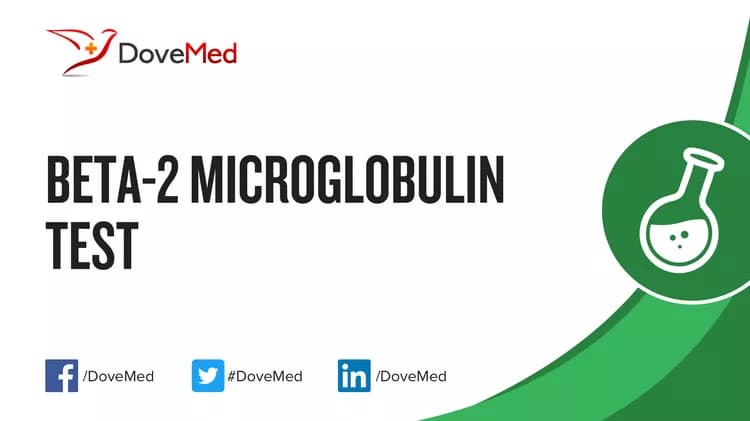What are the other Names for this Test? (Equivalent Terms)
- B2M Blood Test
- ß2-Microglobulin Blood Test
- Thymotaxin Blood Test
What is Beta-2 Microglobulin Test? (Background Information)
- Beta-2 or ß2- microglobulin is a protein found on the membranes of all nucleus-containing cells. It is present in a protein complex called MHC-I, also known as HLA in humans. There are 2 classes of MHC proteins. MHC-I is present on the membranes of all nucleus-containing cells
- As part of the immune process, a cell presents a sampling of its interior contents to the outside. This is done through MHC-I. The white blood cells read a cell’s MHC-I for any signs of irregularities, which indicate that the presenting cell is abnormal
- MHC-II proteins are present only on the membranes of certain white blood cells that can ingest particles and cells. MHC-II allows these cells to show other white blood cells what they have “found” and ingested
- MHC-I, and thus ß2-microglobulin, increase during an immune response. This may parallel HIV infection or deposition of protein aggregates, called amyloid
- Beta-2 microglobulin is normally filtered by the kidneys. This occurs at a microscopic sieve-like structure called the glomerulus, of which each kidney has about 1 million
- When the kidneys are damaged, glomeruli become backed-up and cannot filter ß2-microglobulin. This results in elevated ß2-microglobulin in blood and decreased ß2-microglobulin levels in urine
- The Beta-2 Microglobulin Test is a blood or urine test that assesses the levels of ß2-microglobulin in blood or urine. It is used to diagnose immune diseases, kidney disease, and certain cancers
What are the Clinical Indications for performing the Beta-2 Microglobulin Test?
Following are the clinical indications for performing a Beta-2 Microglobulin Test:
- Monitor antiretroviral therapy
- Monitor aminoglycoside therapy
- Evaluate kidney function
- Pinprick bleedings (petechiae)
- Frequent and persistent infections
- Weight loss
- Headaches
- Gastrointestinal discomfort
- Difficulty breathing
How is the Specimen Collected for Beta-2 Microglobulin Test?
Following is the specimen collection process for Beta-2 Microglobulin Test:
Sample required: Blood or urine
Process:
- Insertion of a needle into an arm vein (to collect a blood sample)
- Collection of urine into a sterile container
Preparation required: No special preparation is needed prior to the test.
What is the Significance of the Beta-2 Microglobulin Test Result?
The significance of Beta-2 Microglobulin Test is explained:
- Elevated ß2-microglobulin levels may indicate:
- Inflammation
- Acquired immunodeficiency syndrome (AIDS)
- Aminoglycoside toxicity
- Crohn’s disease
- Amyloidosis
- Felty’s syndrome
- Hepatitis
- Leukemia
- Multiple myeloma
- Kidney disease
- Systemic lupus erythematosus
- Possible heavy metal poisoning
- Infections
- Decreased ß2-microglobulin levels may indicate:
- Response to antiretroviral therapy
- Kidney disease
The laboratory test results are NOT to be interpreted as results of a "stand-alone" test. The test results have to be interpreted after correlating with suitable clinical findings and additional supplemental tests/information. Your healthcare providers will explain the meaning of your tests results in the context of the overall clinical scenario.
Additional and Relevant Useful Information:
- Red blood cells lack nuclei and do not contain ß2-microglobulin
Certain medications that you may be currently taking may influence the outcome of the test. Hence, it is important to inform your healthcare provider, the complete list of medications (including any herbal supplements) you are currently taking. This will help the healthcare provider interpret your test results more accurately and avoid unnecessary chances of a misdiagnosis.
Related Articles
Test Your Knowledge
Asked by users
Related Centers
Related Specialties
Related Physicians
Related Procedures
Related Resources
Join DoveHubs
and connect with fellow professionals


0 Comments
Please log in to post a comment.